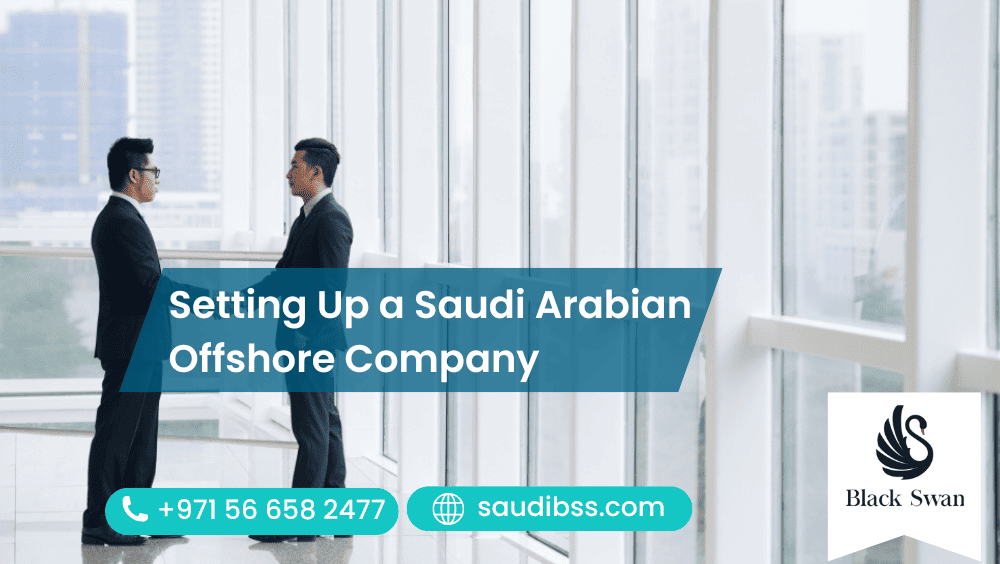
Clearly, Saudi Arabia is setting up momentum, and entrepreneurs feel it on a daily basis,. Therefore, foreign founders now see clearer rules, faster licensing, and deeper sector demand. Moreover, the Kingdom’s reform agenda links policy to pipelines, not just headlines. Consequently, business incentives in Saudi Arabia reward operators who arrive prepared, compliant, and ambitious.
Vision 2030 Market Signals and Foreign Investment Attraction
The national strategy pushes diversification at scale. Hence, Vision 2030 directs capital toward tourism, manufacturing, logistics, digital economy, and renewable energy. On top of that, agencies promote foreign direct investment through modernized procedures and proactive aftercare. Consequently, foreign entrepreneurs in Saudi Arabia can plan multi-year roadmaps with fewer unknowns. Get details about Business Setup in Saudi Arabia.
MISA Licensing and Streamlined Company Formation
The licensing journey matters on day one. Therefore, the Ministry of Investment (MISA) provides digital channels for approvals and sector clarifications. Moreover, investors can form entities with clear activity codes and transparent ownership structures. Consequently, company formation in Saudi Arabia feels predictable, which shortens time to revenue.
Regional Headquarters (RHQ) Program and Procurement Access
Public buyers demand substance, not just documents. Therefore, the RHQ program encourages multinationals to anchor management teams inside the Kingdom. Moreover, RHQ status supports credibility for public tenders and complex frameworks. Consequently, a regional control center can open doors that a distant branch rarely unlocks. Looking for a Business Setup Consultants in KSA?
Special Economic Zones and Free-Zone Style Incentives
Usually, sector-focused platforms sharpen speed and costs. Hence, logistics hubs and Special Economic Zones (SEZs) offer targeted incentives for distribution, cloud, and manufacturing. Moreover, qualified activities may access customs advantages and streamlined movement. Consequently, SEZ incentives in Saudi Arabia can improve landed cost while protecting working capital.
Tax, Zakat, and Cross-Border Structuring Clarity
Predictability beats surprise in every model. Therefore, investors benefit from defined tax and Zakat frameworks, electronic filing, and clear guidance on permanent establishment. More than that, intercompany treaty alignment and pricing help groups structure flows responsibly. As a result, foreign founders can model scenarios with confidence before committing capital.
Talent Mobility, Visa Options, and Saudization Planning
People power every expansion. Therefore, work authorization tracks faster when roles, titles, and qualifications align with filings. In addition, founders should integrate Saudization ratios and training into hiring from the start. As a result, talent and visa incentives in Saudi Arabia translate into stable teams and better service quality. Get details about Visa Services in Saudi Arabia.
Customs Modernization and Logistics Enablement
Usually, speed across borders defines competitiveness. Hence, advanced declarations,bonded facilities, and modern customs tools, support just-in-time operations. On top of that, airport and seaport corridors link Europe, Africa, and Asia, efficiently. As a result, logistics incentives in Saudi Arabia help e-commerce, pharma, and industrial supply chains scale smoothly.
Financing Pathways, Grants, and Export Support
Capital partners follow credible plans. Therefore, development lenders and commercial banks favor projects with local value, technology transfer, and job creation. Moreover, selected sectors access credit guarantees, export credit, or co-funding windows. As a result, foreign entrepreneurs can match equity with structured debt for faster rollout.
IP Protection, Standards, and Dispute Readiness
Brands and technology need strong ground rules. Therefore, updated IP regimes, clear trademark workflows, and enforceable contracts protect intangible assets. Moreover, founders should localize terms in Arabic and align governing law to avoid friction. Consequently, IP incentives in Saudi Arabia convert innovation into sustained advantage.
Digital Portals, E-Government, and Aftercare Services
Paperless beats paper every time. Therefore, unified portals simplify registrations, visas, and tax submissions. Moreover, investor aftercare teams help resolve utilities, permits, and expansion requests. Consequently, digital government in Saudi Arabia reduces downtime and keeps teams focused on delivery, not queues. Obtaining an Entrepreneur License in Saudi Arabia.
Localization, ESG Credentials, and Supplier Preference
Usually,buyers reward value with values. Hence, ESG disclosures and local content programs influence scorecards during procurement. On top of that, founders who train local teams, measure energy use, and document waste reduction gain reputational lift. As a result, sustainability incentives in Saudi Arabia become commercial advantages, not compliance chores.
Sector Spotlights with Strong Incentive Fit
Tourism, hospitality, and entertainment expand with visible pipelines. Moreover, operators in destination management, events, and F&B, secure demand from new districts and festivals. Moreover, renewables, green hydrogen, and grid services welcome component makers and O&M specialists. Consequently, business opportunities in Saudi Arabia appear across both consumer and infrastructure plays.
First-Month Playbook to Capture Incentives
Usually, speed requires proof and structure. Hence, define one legal entity scope, secure MISA pre-approvals, and map Saudization roles. On top of that, shortlist an SEZ or mainland site, pre-clear customs flows, and align trademarks. As a result, procurement teams and banks receive complete files that pass checks quickly.
Related Articles:
» Can a Foreigner Start a Business in Saudi Arabia?
» Saudi Arabia’s 8 Investment Incentives for Foreigners
» How Foreign Investors Can Start a Business in Saudi Arabia?
» Can a Foreigner own 100% of a Business in Saudi Arabia?
» Registering a Company in KSA as a Foreigner
Common Pitfalls and How to Avoid Them
Usually rushing paperwork invites delays. Hence, validate signatory powers, directors, and activity codes before signing leases. In addition, localization targets, tax mapping, or neglecting IP, can derail launch day. As a result, a disciplined checklist preserves incentives and keeps cash timelines stable.

Turning Incentives into Durable Advantage
The Kingdom welcomes operators ready to build. Therefore, match incentives with real substance, local talent, and transparent governance. Moreover, publish numbers, deliver consistently, and audit your promises. Consequently, foreign entrepreneurs in Saudi Arabia convert policy momentum into resilient growth and long-term brand equity.
FAQs
Which authority manages Foreign investment licensing?
Foreign investment licensing is managed by the –Ministry of Investment (MISA). Moreover, its digital channels guide activities, ownership, and sector notes. Consequently, formation and onboarding move faster.
How does the RHQ program help market access?
The RHQ framework signals commitment and capacity. Moreover, it strengthens eligibility for complex frameworks and public projects. Consequently, credibility rises during procurement evaluations.
Do free-zone style incentives exist for industry and tech?
Designated SEZs and logistics hubs provide targeted advantages for qualifying activities. On top of that , they support operational speed and customs efficiency. Consequently, cost and time both improve.
What hiring factors influence incentive outcomes?
Saudization planning, documented training, and clear roles matter. Moreover, visa alignment with qualifications accelerates onboarding. Consequently, teams stabilize and service quality improves
Which proof helps during procurement and banking?
Usually, localized contracts, ESG metrics, IP registrations, and Audited numbers, help. On top of that, compliance trails and clean tax mapping reduce risk perception. Consequently, approvals arrive quickly.

Saudi Arabia is opening fresh routes for global investors. Therefore, setting up a free zone business in Saudi Arabia feels timely and strategic. Moreover, the Kingdom now anchors “free zone” style incentives inside regulated Special Economic Zones and a dedicated Special Integrated Logistics Zone. Consequently, founders can pair strong demand with clear, published benefits when they enter the market.
Free zones versus SEZs in the Kingdom
People often say “free zone” by habit. However, Saudi law describes most platforms as Special Economic Zones, supervised by the Economic Cities and Special Zones Authority (ECZA). Therefore, you should use the official term when applying or negotiating. Additionally, Saudi hosts a separate aviation-focused platform called the Special Integrated Logistics Zone near Riyadh airport, which carries its own tax and customs rules. Consequently, your structure and incentives depend on which zone you select. Get details about Business Setup in Saudi Arabia.
Where you can actually locate
The first wave features four SEZs with distinct sector focus. Hence, investors can position operations at King Abdullah Economic City, Jazan, Ras Al Khair, and the Cloud Computing SEZ. Moreover, ECZA highlights streamlined regulations, international connectivity, and sector targeting across these locations. Consequently, you match site selection to supply chains rather than force a generalist choice.
Meanwhile, the Special Integrated Logistics Zone at King Khalid International Airport targets e-commerce, distribution, and high-value logistics. Therefore, companies that re-export or run regional distribution should assess this option early. Additionally, the zone publishes incentives and customs suspensions designed for rapid movement. Consequently, time-sensitive models gain a structural advantage. Looking for a Company Formation in Saudi Arabia Free Zone?
Headline incentives you should understand
SEZs advertise a reduced corporate income tax rate of five percent for up to twenty years, alongside relief on withholding tax for profit repatriation and customs flexibility. Hence, long–horizon manufacturers and service hubs can model predictable savings. Moreover, some zones enable 0% VAT treatment for goods exchanged within or between zones under defined conditions. Consequently, your landed cost and pricing can improve materially.
The Special Integrated Logistics Zone publishes a separate package. Hence, qualifying businesses may access 0% corporate income tax, VAT exemptions, and broad customs suspensions for goods that remain in the zone. Additionally, ZATCA guidance describes how duty and VAT stay suspended until goods enter the mainland. Consequently, you avoid cash flow drags while inventory transits the platform.
The licensing path, stated simply
Foreign investors typically secure a MISA license, then obtain the zone license from ECZA or the relevant authority, and later register with ZATCA for tax. Therefore, prepare clean articles, shareholder IDs, and sector approvals before you start. More than that, align your trademark plans with Saudi filings early, Just so branding flows into customs records and zone documentation . Subsequently, onboarding times shrink and banking starts sooner.
Like so the RHQ policy now shapes government contracts, strategy matters. In addition, from January 1, 2024, ministries generally avoid contracting with firms that lack a Saudi Regional Headquarters, subject to limited exceptions. Hence, if public tenders anchor your pipeline, explore an RHQ license in parallel with your zone company. Additionally, advisors summarize procurement controls and timelines that now apply. Consequently, your bid eligibility remains intact. Get details about List of Free Zones in Saudi Arabia.
Customs, VAT, and the mainland interface
In SEZs, customs and VAT treatments follow zone rules and published bylaws. Therefore, your tax position depends on whether goods stay inside the zone, move between zones, or enter the mainland. Moreover, several summaries confirm customs deferral and special VAT handling for intra-zone movements. Consequently, finance teams should build itemized flows, not assumptions.
Within the Special Integrated Logistics Zone, goods enjoy a customs duty suspension while they remain in the zone. Hence, VAT and duty crystallize only when items enter the mainland. Additionally, logistics services in the zone often fall outside VAT scope under the suspension framework. Consequently, your working capital profile improves during storage and processing.
Corporate tax, Zakat, and ongoing compliance
Saudi taxes non-resident corporate income, while Zakat may apply to Saudi or GCC ownership portions. However, SEZs publish separate corporate income tax incentives that override standard rates for qualifying activities. Therefore, confirm eligibility and ring-fence your qualifying income streams. Moreover, file returns on time and maintain precise transfer pricing and intercompany support files. Consequently, audits become routine rather than disruptive. Looking for a Company Registration in SAGIA Free Zone?
Banking, payroll and workforce localization
Banks favor clear licenses, real leases and transparent ownership. Hencr, open accounts with a practical cash-management plan and a complete KYC pack . More than that , design staffing around sector Saudization requirements, since hiring rules continue to evolve. Therefore, recruitment feels predictable and compliance stays healthy during expansions.
Real estate, utilities, and ESG performance
SEZ sites publish infrastructure and utility access that suit industry. Therefore, validate power, water, and telecom service levels before you sign. Moreover, document energy efficiency and waste controls because large customers now score suppliers on ESG practices. Consequently, you protect enterprise sales and lender confidence while operating in the zone. Get details about Company Registration in Modon Free Zone.
Common missteps you can avoid
Founders sometimes treat incentives as automatic. However, each zone ties benefits to activities, substance, and location. Therefore, document headcount, spend, and revenue where required. Additionally, teams sometimes ignore intra-zone VAT mechanics and then overpay on mainland transfers. Consequently, build a clear tax map with SKUs, routes, and counterparties before your first shipment.
Related Articles:
» Setting Up a Business in KSA Free Zones
» Best Free Zones in Saudi Arabia to Kickstart Your Business
» Top Cities in Saudi Arabia to Register a Company
» Advantages of Setting Up a Business in Saudi Arabia
» Launching Your Business in Saudi Arabia
A practical month-one plan
You can advance quickly with tight preparation. Therefore shortlist the zone, confirm activity eligibility and draft your capital and substance plan. Moreover compile your MISA file, reserve your trade name and align trademark filings. Consequently you move into landlord talks, bank onboarding and warehouse scoping without stalls.

Your Next Steps for Establishing a Free Zone Business in Saudi Arabia
Saudi now combines pro-investment policy with targeted platforms. Therefore, setting up a free zone business in Saudi Arabia can deliver tax certainty, customs speed, and sector clustering. Moreover, you must still design proper governance, audit trails, and HR plans. Consequently, incentives become durable advantages rather than fragile assumptions.
FAQs
What is the difference between a free zone and an SEZ in Saudi Arabia?
Saudi law frame most platforms as Special Economic Zones managed by ECZA, while a separate Special Integrated Logistics Zone operates at Riyadh airport. Therefore, incentives and rules vary by platform.
What tax incentives can an SEZ offer today?
Current materials cite 5% corporate income tax for up to 20 years, alongside repatriation relief, customs flexibility, and defined VAT treatments within or between zones. Consequently long-term models become easier to finance.
How do customs and VAT work for the airport logistics zone?
Goods in the Special Integrated Logistics Zone remain under duty and VAT suspension until they enter the mainland, which improves cash flow for distribution models. Therefore design flows accordingly.
Do I still need MISA license if I use a zone?
Yes. You usually obtain a MISA foreign investment license first, then the zone license, and finally register with ZATCA. Consequently your structure stays compliant from launch.
Does the RHQ program affect zone companies?
It can. From 2024, many government entities restrict contracting with firms lacking a Saudi Regional Headquarters, subject to limited exceptions. Therefore, assess RHQ licensing if public tenders are essential.

As always, Saudi Arabia moves fast and entrepreneurs feel the momentum. Starting a franchise in Saudi Arabia can deliver scale with tested playbooks. More than that, the Kingdom’s reforms, young consumers, and strong retail footprints set a promising stage. Apart from that, founders who prepare carefully can grow with confidence and speed.
Why the Saudi franchise market looks attractive
The consumer base is young, connected, and brand aware. In addition the family spending favors are recognizable experiences and quality service. Hence, a proven franchise model lands faster than a brand-new concept. Furthermore, roadside locations, mixed–use districts, and premium malls, keep expanding. Subsequently, footfall and delivery networks support diverse categories from food to fitness.
Tourism also strengthens the story. Therefore, inbound events and internal travel raise weekend demand. Furthermore, digital adoption remains high, so ordering and loyalty apps amplify reach. Thus, omnichannel franchise operations can blend dine-in, pickup, and delivery without heavy friction. Get details about Business Setup in Saudi Arabia.
Understand the Saudi franchise law basics
You should respect the local framework before you sign anything. Therefore, plan for pre-contract disclosure, registration steps, and clear Arabic documentation. Moreover, regulators value transparency around fees, training, territory, and renewal rights. Consequently a clean franchise agreement protects both sides and also shortens future approvals.
Because compliance touches many details, prepare structured files. Therefore, maintain a current Franchise Disclosure Document (FDD), audited financials for the franchisor, and proof of IP ownership. Besides, align your trademark filings in Saudi Arabia early. Apart from that, you prevent costly rebranding later.
Choose the right franchise structure
You can operate a single unit, several units, or a master franchise for larger territories. Therefore, match the structure to your capital, management depth, and rollout plan. Furthermore, multi unit commitments often unlock pricing advantages and stronger training support. Consequently, you scale faster while keeping consistency.
However, control matters. Thus, if you lack experienced managers, begin with a focused cluster near your home base. Additionally, document every procedure from day one. Consequently, you build repeatability before you chase distant sites. Looking for a Business Setup Consultants in KSA?
Location still decides margins
Saudi retail success lives and dies on site selection. Therefore, study anchors, visibility, parking, and delivery radius. Moreover, negotiate service hours that match peaks across weekdays and weekends. Apart from that, inventory flows and labor planning stay efficient.
Generally, malls deliver stable traffic, while community centers cut travel time and rent . Therefore, analyze both options with realistic sales ladders. Besides, coordinate your opening calendar with neighborhood campaigns and mall events. As a result the first ninety days carry momentum into quarter two.
Hiring and Saudization planning
You should design your staffing plan around local hiring rules. Therefore, map required Saudization ratios for your activity early. Moreover, invest in training pathways that turn new teammates into confident operators. Consequently, service quality rises while compliance stays healthy.
Culture also counts. Hence tailor scheduling, uniforms and communication styles to local expectations. Additionally, create clear growth ladders for supervisors and store managers. Consequently, retention improves, and training costs fall.
Financing, fees, and cash flow discipline
Franchising aligns capital with predictability. However, you should model all fees honestly. Therefore, include initial fees, royalties, marketing funds, fit-out costs, and working capital for launch. More than that, test scenarios for rent escalations and supply shocks . Apart from that , cash cushions protect operations during ramp up.
Banks usually favor detailed plans and recognizable brands. Because of which, support your application with audited numbers from the franchisor and site level forecasts. Besides, show unit economics that survive average months, not just opening spikes. Apart from that, lenders view your plan as bankable, not hopeful. Get details about Business Establishment in KSA.
Supply chain and customs considerations
Predominantly, food brands must secure stable cold chains and reliable distributors. Hence, validate delivery SLAs, storage standards, and importer licenses. Furthermore, test product substitutions that maintain taste and cost when imports slow. Subsequently, you prevent long outages after promotions.
Non-food brands should manage spare parts, packaging and after-sales service. Therefore add safety stock for high velocity SKUs as well as seasonal peaks. Over and above that, track lead times and create reorder triggers. Apart from that, shelves stay full and customer reviews stay positive.
Tax, Zakat and VAT awareness
Initially, you should file and register on time. Hence, keep clean invoicing and digital records for audits. More than that, reconcile royalties, marketing contributions, and intercompany charges with care. Consequently, you reduce disputes and protect cash.
Because rules evolve, maintain a local advisor. Hence, update your processes after each change to filing portals or rate interpretations. Additionally, train store accountants and area managers on documentation standards. Consequently, closings become routine rather than stressful.
Training, QA, and brand protection
A franchise business thrives on consistency. Therefore, invest in onboarding, shadow shifts, and certification checklists. Moreover, schedule audits that check food safety, service times, and cleanliness. Consequently, your stores look and feel identical across districts.
Technology strengthens this discipline. Because of which, deploy POS integrations, inventory tools, and mystery shopping apps. Besides, share dashboards with the franchisor to encourage coaching, not policing. Consequently, problems shrink before guests notice.
Mastering the first ninety days
Openings create habits for life. Therefore, soft-open with staff you trust and a pared menu. Besides collect feedback daily and fix bottlenecks fast. Consequently, service improves before the grand launch.
Train morning and evening crews on the same standards. Hence, remove silent drift across shifts. Additionally, publish one-page briefs for promos and peak plans. Consequently, teams move in sync during busy weekends.
Related Articles:
» Franchise Opportunities in Saudi Arabia: A Lucrative Investment Path
» Legal and Regulatory Insights: Setting Up a Business in Saudi Arabia
» Launching Your Business in Saudi Arabia
» What are the Requirements to Start a Business in Saudi Arabia?
» Advantages of Setting Up a Business in Saudi Arabia
Common mistakes you can avoid
Founders sometimes chase too many units too early. Therefore, respect the learning curve and stabilize the first cluster. Moreover, do not skip Arabic documentation or trademark checks. Consequently, you prevent painful rework.
Others underinvest in managers. Hence, promote with training, not only tenure. Additionally, give leaders clear KPIs that blend sales, QA, and staff development. Consequently, stores improve without constant owner presence.
The bottom line for franchise in Saudi Arabia
You can win only if you prepare like a pro. Therefore, align the franchise agreement with local law, secure trademarks, and budget beyond launch day. Moreover, choose sites with disciplined data and build teams that love standards. Consequently growth compounds across months, not just weekends. Thus, your franchise business turns playbooks into durable value.
FAQs
Do I need a local company to run a franchise in Saudi–Arabia?
Requirements are based on your sector & structure. Hence, discuss corporate forms with a local advisor and line up visas, banking and licenses, before signing.
What should a franchise agreement include for Saudi operations?
It should set territory, fees, training, QA, renewal as well as termination. Moreover, ensure Arabic versions, disclosure compliance and trademark clarity to avoid disputes.
How do I make a choice between single–unit and master–franchise rights?
Choose single-unit if you want focus and low risk. However, pick multi-unit or master only when you hold capital, leadership depth and proven rollout skills.
Other than initial fees and fit–out how much should I budget?
Initially you must carry working capital for marketing, inventory, payroll and also rent across several months. Furthermore, model slower ramps and soft openings to secure cash.
In the first quarter, What KPIs matter most ?
QA scores, product availability, labor percent, average ticket and track sales per hour. Apart from that, monitor response time and review volume to strengthen loyalty.

Establishing a Saudi Arabian offshore company has mixed feeling of excitement and also stress. You want speed, certainty and clean compliance. Therefore, you need a practical, human guide that keeps things simple. This guide explains structure, process, and benefits in plain Australian English. Additionally, it highlights the essential company formation touchpoints without fluff or jargon.
What “offshore” means in the Saudi context?
People often imagine palm trees and zero-tax islands. However, an offshore company in Saudi Arabia usually means a foreign-owned entity set up for cross-border business. Typically you incorporate in a free zone or a special economic zone designed for international trade. Moreover, some investors use a holding vehicle that owns regional subsidiaries. The key is lawful substance, clear purpose, and documented control. Get details about Business Setup in Saudi Arabia.
Why choose Saudi Arabia now?
Saudi Arabia is at the centre of the Middle East supply chain. Accordingly, a Saudi market entry can reduce freight times and unlock government projects. Moreover the reform agenda has upgraded procedures and digital portals. Especially, modern infrastructure support, advanced manufacturing, finance and logistics. Additionally, regional headquarters policies attract multinationals that need proximity to clients. Hence, a Saudi Arabian offshore company can anchor your Gulf growth strategy.
Pick the right structure first
You should align legal form with risk and control. Most investors choose a limited liability model for protection. Although project partnerships can also suit joint ventures. Furthermore, free zones offer focused rules for ports, finance, and technology. In addition to this the substance requirements encourage real activity, not brass-plate shells. Hence, decide where your contracts, teams, and shipments will actually sit.
Name, activity & licensing basics
Choose compliant company name and define your licensed activity early. Regulators check names for conflict & restricted words. Moreover your activity list drives approvals, inspections, and fees. Additionally your trade license must match what you sell and how you sell it. Therefore map your product catalogues and service lines before filing. This homework reduces queries and hence keeps timelines predictable.
Ownership, capital, and governance
Agree on shareholders, capital, and voting rights before you draft anything. Furthermore, write a clear shareholders’ agreement that places reserved matters, board seats, and deadlock steps. Besides, build corporate governance that scales, not just paperwork for day one. Assign signing authorities, cash thresholds, and reporting cycles. Consequently, your team will move quickly without tripping control gates. Importantly, document beneficial owner details to meet disclosure rules.
Documents you will actually prepare
You will prepare articles, incorporation forms, specimen signatures, and office lease evidence. Moreover, banks will ask for certified IDs, group charts, and source-of-funds letters. Additionally, you may need audited parent accounts for comfort. Hence assemble digital data room with proper filename. Then your advisers can review once and avoid repeated requests. Consequently, review cycles shrink and launch dates hold. Looking for a Business Setup Consultants in KSA?
Banking and payments in practice
Opening a bank account takes focus and patience. Therefore, shortlist relationship banks and meet them early. Moreover, explain your supply chain, client list, and average ticket sizes. Additionally, present screening-friendly SKUs and countries to reduce compliance friction. Notably, banks favour clean narratives and sensible volumes. Consequently, your onboarding team will process faster and ask fewer follow-ups.
People, visas, and offices
You need real substance for credibility. For that reason, secure an office suited to inspections and daily work. In addition, plan your first hires and align employment contracts with local law. Besides, manage insurance, medicals and visas,, with a clear calendar. Accordingly, you do away with last-minute scrambles that delay sales. Meanwhile, set HR policies that reflect your compliance culture from day one.
Tax, invoices, and record-keeping
Treat tax as a design decision, not a reconsideration. Moreover, register for local taxes when thresholds or activities require it. Additionally, issue compliant invoices and track collections tightly. Therefore, build a monthly close that reconciles inventory, customs entries, and bank statements. Consequently, your Saudi company formation remains audit-ready and stress-free. Importantly, keep your transfer pricing files in order for cross-border trades. Get details about Company Formation in Saudi Arabia.
Intellectual property and contracts
Before marketing, protect your intellectual property. Therefore, file trademarks for brands and key product lines. Moreover, license technology properly between group entities. In addition lock in confidentiality and also non compete the language with partners. Consequently, your assets stay protected as the company scales. Notably, clean IP chains also help with future financing and exits.
Practical timeline that actually works
Begin with a short scoping memo that lists budgets, staff and activities. Then prepare documents while finalising the office lease. Moreover file the incorporation and license applications together when possible. Besides, run bank onboarding in parallel with utilities and payroll setup. Accordingly, you compress the schedule without cutting corners. At last launch a limited offer, gather feedback and iterate fastly.
Risk control without drama
You can dullen risk with steady routines. Hence, perform quarterly compliance checks on licenses, visas, and filings. In addition rotate payment approvers and also review supplier master data.
Additionally, document board decisions and keep minute books tidy. Consequently, regulators and banks will trust your controls. At the same time, your team can concentrate on revenue, not fire drills.
Real-world benefits you can feel
A Saudi Arabian offshore company offers regional reach with local credibility. Moreover, free zone ecosystems connect you to logistics hubs and specialist talent.
Additionally, faster customs procedures can improve cash cycles and customer satisfaction. Consequently, you ship more, faster, and with fewer surprises. Notably, a clean governance record also wins tenders and enterprise clients. Therefore build momentum that compounds each quarter. Obtaining an Entrepreneur License in Saudi Arabia.
When a holding structure makes sense?
Some groups place a holding company above the operating subsidiaries. Moreover, this model can streamline exit choices. Dividends, and financing, Besides, it can reduce legal fragmentation and centralise IP ownership Therefore, consider a holding layer if you plan multiple regional entities. Consequently, future investors will see a tidy, bankable structure.
Common mistakes to avoid
Actually the founders sometimes chase the cheapest package and ignore substance. However, regulators and banks care about real activity. Therefore, invest in the right office, the right team, and accurate books. Moreover, do not stretch your licensed activities to fit new pitches. Additionally, update licenses before launching extra lines. Consequently, you protect hard-won trust and keep audits painless.
Related Articles:
» Setting Up Your Business: Tips for Company Establishment in Saudi Arabia
» Advantages of Setting Up a Business in Saudi Arabia
» Top Locations in KSA for Business Setup
» Legal and Regulatory Insights: Setting Up a Business in Saudi Arabia
» Benefits of Registering a Company in Riyadh, KSA
A simple, workable checklist
Confirm zone and structure. Organize agreements and documents . Reserve the name and define activities. File incorporation & trade license application. Open the bank account and fund capital. Hire staff and secure visas. Register for taxes and configure invoicing. Moreover, schedule governance meetings and maintain registers. Finally, launch, measure, and improve.

Saudi Arabian Offshore Company Setup
You can build a resilient offshore company in Saudi Arabia with focus and discipline. Moreover, you can move fast without skipping controls. Additionally, you can design governance that empowers teams and reassures partners.
Accordingly, your company will scale cleanly and keep doors open. Document well, start small,, and keep promises. Hence, your launch will feel smooth, professional, and proudly compliant.
FAQs
In plain terms what is a Saudi Arabian offshore company?
It is a foreign-owned entity set up for cross-border business through a free zone or special economic zone. Moreover, it trades regionally while maintaining lawful substance.
Which structure should I choose for Saudi company formation?
Usually most founders choose a limited liability format for protection and control. In addition, joint ventures can suit partner-heavy projects. Hence align the form with risk, scale and governance.
How long does company registration usually take?
Timelines vary with activity, documents, and inspections. Moreover, clean files and early bank engagement shorten the path. As a result parallel workstreams help you avoid idle gaps.
Do I need local staff for substance?
Yes real functioning need real people and also space. Further inspectors expect functioning offices & active records. Accordingly, plan hires and visas early to support launch dates.
What ongoing compliance should I expect after incorporation?
You should renew licences, maintain registers, file taxes, and hold board meetings. Moreover, update activities before new launches. Consequently, your Saudi Arabian offshore company stays audit-ready and trusted.

You want market access with real control. Therefore, a branch office in Saudi Arabia offers a direct route without a separate local company. Moreover, you keep global branding and group oversight. Additionally, you operate under the foreign parent’s name and scope. Consequently, you move faster on contracts while protecting strategic control.
Saudi Arabia rewards clarity, substance and compliance. Hence, you should map the setup path before you fly. Moreover, you will deal with MISA, the Ministry of Commerce and several online portals. Additionally, smart sequencing cuts weeks from your timeline. Therefore, use this guide to plan each step with confidence.
Why choose a Saudi branch over a subsidiary?
A Saudi branch suits project delivery, long-term contracts and government tenders. Moreover, you trade under your parent’s identity and license scope. Additionally, you can invoice locally and hire staff on Saudi terms. Therefore, you gain credibility with clients who prefer in-kingdom presence.
However, a branch ties obligations to the parent. Consequently, governance and risk controls matter from day one. Moreover, you should align banking, audit and tax reporting with head office calendars. Additionally, you need clear internal approvals for signatories. Therefore, decide early who signs contracts and who approves payments. Get details about Business Setup in Saudi Arabia.
The core approvals you will secure
You start by applying for a MISA license. Moreover, the license defines your activity and confirms foreign investment permission. Additionally, you submit corporate documents, a board resolution and a Power of Attorney. Consequently, MISA clears the parent to operate a branch office in Saudi Arabia.
Next, you register the branch with the Ministry of Commerce to obtain Commercial Registration. Furthermore, you join the Chamber of Commerce for stamping and services. Additionally, you secure a municipal address through the relevant portal. Therefore, your legal footprint becomes complete enough to open utilities and sign leases.
Banking, capital and practical setup
Banks will ask for KYC, group charts and authorised signatories. Moreover, expect in-person verification for at least one director. Additionally, prepare source-of-funds letters and specimen signatures. Consequently, account opening runs smoother and faster.
Some activities may require minimum capital or insurance. Therefore, confirm your sector rules before committing to a lease. Moreover, many investors choose serviced offices during early months. Additionally, a compliant address and Wasel registration help with mail and inspections. Hence, you gain flexibility while the team expands. Looking for a Branch of Foreign Company Registration in Riyadh?
Tax and invoices in plain English
Branches face Saudi corporate income tax on profits attributable to the branch. Moreover withholding tax can apply to certain cross-border payments. Additionally VAT registration triggers when thresholds or activities require it. Therefore, you should plan monthly closes and tight reconciliations.
You will register with ZATCA and issue e-invoices through approved solutions. Furthermore, you will maintain chart-of-accounts mapping for group consolidation. Additionally, you should prepare transfer pricing documentation for intercompany services. Consequently, audits move calmly and banking relationships stay strong.
HR, visas and workforce planning
You will hire under local labour law. Moreover, you register with the employment portals used for visas and work permits. Additionally, payroll systems must handle allowances, leave, and GOSI social insurance. Therefore, you should align start dates with onboarding windows and medicals.
Saudisation rule shape hiring plans. Consequently you should model headcount, categories and timelines. Moreover partner with recruiters who understand compliance and culture. Additionally provide induction on safety, privacy and anti-bribery controls. Hence, performance and compliance rise together from week one. Get details about Company Registration in Saudi Arabia.
Contracts, risk and governance that scale
A branch signs as the foreign parent’s extension. Therefore contract templates must reflect governing law, currency and dispute venues. Moreover set delegations of authority with clear limits. Additionally, keep dual signatories on payments above agreed thresholds. Consequently, you reduce fraud and approval bottlenecks.
You also need internal policies for gifts, hospitality and third-party onboarding. Furthermore, screen vendors and agents before engagement. Additionally, run annual training on sanctions and anti-money laundering rules. Therefore, your branch protects reputation while winning work.
Compliance calendar without drama
Create a calendar for license renewals, tax filings, audits and HR submissions. Moreover schedule board meetings and minute taking at regular intervals. Additionally, store resolutions and PoAs in a shared repository. Consequently, inspectors and bankers find what they need fast.
Technology helps. Therefore, use e-signature for internal approvals where permitted. Moreover track contracts and milestones in central platform. Additionally retain invoices, payroll record and supporting documents for audit. Hence closing the month feel routine, not rushed.
Costs, timing and sequencing
Timelines vary by activity, documents and bank checks. However, you can compress weeks with parallel workstreams. Therefore, draft the MISA pack while you prepare the Commercial Registration bundle. Moreover, line up the lease, the bank KYC and the e-invoicing solution in parallel. Additionally, confirm insurance and sector permits before go-live. Consequently, your branch office in Saudi Arabia starts billing earlier.
Costs include government fees, translations, attestations and professional services. Moreover, plan for notary charges, chamber fees and stamping. Additionally, budget for accounting software, payroll and IT security. Therefore, present a clear forecast to head office and obtain approvals once. Obtaining an Entrepreneur License in Saudi Arabia.
Practical tip that save time
Translate names and activities consistently across every document. Moreover, align dates, addresses and signatories to avoid queries. Additionally keep colour scans and certified copies ready for each portal. Consequently you answer requests within hours, not days.
Meet your relationship manager at the chosen bank early. Furthermore, explain the business model and the expected volumes. Additionally, share customer lists and geographies to smooth compliance. Hence, onboarding teams process your file with fewer questions.
Related Articles:
» How Foreign Investors Can Start a Business in Saudi Arabia?
» Business Opportunities For investors in Saudi Arabia
» How Foreign Investors Can Reduce Tax Liability in Saudi Arabia?
» How to Start Foreign Company Branch in Saudi Arabia?
» Registering a Company in KSA as a Foreigner
When to pick a subsidiary instead?
A subsidiary fits when you need local investors, equity plans or ring-fencing. Moreover, it helps when you plan unrelated activities or a future sale. Additionally, a company can carry local branding with different governance. Therefore, consider both paths against your risk appetite and exit strategy.
However, many foreign groups start with a branch and add a subsidiary later. Consequently, they retain speed during market entry while gathering data. Moreover, they then restructure calmly once product-market fit proves durable. Additionally, advisers help manage tax and legal transitions. Hence, you protect continuity without losing agility.

Branch Office Setup in Saudi Arabia
A Saudi branch provides control, credibility and speed. Moreover, it lets you trade under your global identity while hiring locally. Additionally, clear sequencing across MISA, Commerce, ZATCA, banking and HR keeps the project on track. Therefore, prepare documents carefully, assign strong signatories and build a living compliance calendar. Consequently, your branch office in Saudi Arabia can win contracts, pay staff and report clean results from the first quarter.
FAQs
What is a branch office in Saudi Arabia, in simple terms?
A branch office is an in-kingdom extension of the foreign parent. Moreover, it operates under the parent’s name and scope. Additionally, it can invoice locally, hire staff and sign contracts.
Do I need a Saudi partner to open a branch?
Generally, no. Moreover, the MISA licence authorises foreign ownership for approved activities. Additionally, specific sectors may set conditions. Therefore, confirm your activity before filing.
How long does the process usually takes?
Timelines vary by activity and document readiness. Moreover, parallel work on MISA, Commercial Registration, banking and e-invoicing shortens the path. Consequently, organised files move faster.
How are branches taxed in Saudi Arabia?
Branches face local corporate income tax on branch profits. Moreover, withholding tax can apply to certain cross-border charges. Additionally, VAT registration may be required. Therefore, maintain tight books and seek tailored advice.
Can the branch sponsor visas for foreign staff?
Yes, once core registrations and banking are active. Moreover, you must follow Saudisation rules and HR procedures. Additionally, payroll must include GOSI and compliant contracts. Therefore, plan onboarding timelines carefully.

You built a brand and want it protected where growth is real. Trademark registration in Saudi Arabia secure that edge. Moreover, the process is structured, digital and worth the effort. Therefore, this practical guide explains eligibility, filing, examination, opposition and enforcement so you move with confidence in the Kingdom.
A trademark in KSA can be words, logos, names, letters, numerals, colours or combination that distinguish your goods or services. Moreover, non-traditional signs such as sound or smell may be registrable where rules allow. Therefore, the safest path is to select clear, distinctive marks that consumers can recognise easily. Additionally, avoid purely descriptive or generic terms that describe quality, function or origin. Consequently your application faces fewer objections and reaches registration faster.
Why register your mark in Saudi Arabia?
Registration grants exclusive rights over your mark for listed goods or services. Moreover it gives standing to stop confusingly similar uses in the market. Therefore, you gain leverage in negotiations, distribution and franchising. Additionally a certificate supports customs recordal against counterfeit imports. Consequently enforcement becomes faster at borders and online.
Trademark Registration in KSA also strengthens marketplace takedowns and advertising claims. Moreover investors value protected IP because it reduces revenue risk. Therefore a registered right improves valuation, especially during regional expansion. Additionally registration supports clean brand alignment across packaging, labels and digital assets. Consequently, your marketing team moves without legal friction.
Understanding classes and picking the right scope
Saudi Arabia follows the Nice Classification for goods and services. Moreover, you must choose classes that reflect real commercial activity. Therefore, list specific items that customers will see on shelves or in proposals. Additionally, avoid class headings without detail because examiners prefer precise terms. Consequently, your protection matches reality and remains enforceable.
Think future as well as present. Moreover, include closely related goods that you plan to launch within a reasonable time. Therefore, your portfolio stays useful as the product roadmap evolves. Additionally, do not overreach into distant categories without intent to use. Consequently, you avoid unnecessary renewal expense and non-use risk later.
Clearance searching before you file
A trademark search reduces surprises. Moreover, check identical and similar marks in Arabic and English. Therefore consider transliteration, phonetic twin and look-alike logo. Additionally review company name, domain & social handles to spot conflicts early. Consequently you adapt spelling or design before filing and protect budget.
Professional search dig deeper into visually and conceptually similar mark. Moreover, they test strength in crowded classes like food, fashion or tech. Therefore, you gain a realistic risk report rather than guesswork. Additionally, a short legal opinion helps plan responses to predictable objections. Consequently, filing becomes a planned move, not a gamble. Looking for a General Trading License in Saudi?
Preparing the application the right way
File under the correct applicant name with clean corporate details. Moreover, keep addresses and spellings consistent across all documents. Therefore, the registry can link your data without delays. Additionally, include a sharp representation of the mark and a precise goods and services list. Consequently, examiners evaluate quickly and accurately.
Foreign applicant usually appoint a local agent. Moreover a power of attorney may require notarisation and legalisation depending on your situation. Therefore prepare paperwork early to avoid clock pressure. Additionally, file in the correct class count to match your product mix. Consequently, future extensions become strategic rather than urgent.
Filing, examination and office actions
Applications are lodged through the Saudi IP e-services portal. Moreover, the registry first checks formality, then substance. Therefore, examiners assess distinctiveness, conflicts and compliance with public order rules. Additionally they may issue office actions that request arguments, disclaimers or amendments. Consequently swift, reasoned replies increase your chance.
Examiner often question descriptive claims, laudatory words and generic shapes. Moreover suggest alternative wording, add disclaimer for non-distinctive part and stress acquired distinctiveness if applicable. Therefore support argument with evidence like sales, advertising & market share. Additionally respond within deadline to keep file active. Consequently examination move toward acceptance instead of refusal.
Publication, opposition and how to handle challenges
Accepted marks proceed to publication in the official gazette. Moreover third parties can oppose within a defined window. Therefore monitor the journal and watch for conflicts across your classes. Additionally consider a trademark watch to catch confusingly similar filings early. Consequently, you can oppose swiftly with better odds.
If faced with an opposition, negotiate where possible. Moreover many disputes resolve through coexistence terms that limit look, class or geography. Therefore, weigh the cost of litigation against practical settlement outcomes. Additionally, prepare evidence of use and distinctiveness to support your defence. Consequently, you protect market momentum during the process.
Registration, duration and renewal planning
When no opposition remains, the registry issues the certificate. Moreover, trademark registration in Saudi Arabia runs for ten years from filing and is renewable indefinitely. Therefore docket renewal date well before expiry to avoid surcharge pressure. Additionally, maintain accurate ownership records if your company rebrands or restructures. Consequently, chain of title stays clean for enforcement and licensing.
Use matters after registration. Moreover extended non-use may invite cancellation actions by competitors. Therefore maintain genuine use and keep dated evidence like invoice, catalog, POS photo and ads. Additionally refresh marketing assets to reflect the registered look. Consequently your mark remains both valid and strong. Looking for a Commercial Trading License in Saudi?
Enforcement, custom recordal and online protection
Registration enable effective enforcement in court and at borders. Moreover customs recordal pairs your certificate with product identifiers for faster seizures. Therefore prepare guide for officers that show authentic features and common counterfeits. Additionally record multiple mark if your brand appear in variants. Consequently, counterfeit risk drops across shipments.
Online channels need proactive steps. Moreover, use your registration to support platform takedowns against infringing sellers. Therefore, file claims with marketplace IP portals and attach the certificate. Additionally, reserve domain names that match your brand and Arabic transliteration. Consequently, bad-faith registrations become rarer and easier to remove.
Madrid filings and regional strategy
Saudi Arabia participate in the Madrid Protocol for international trademark. Moreover, you can extend a home application or registration to KSA through Madrid. Therefore, Madrid helps when you seek protection in multiple countries with one workflow. Additionally, direct national filing still makes sense when strategy or timing demands. Consequently, choose the route that best fits budgets and deadlines.
A regional plan matters for GCC expansion. Moreover align classes, specimens and narratives across markets to support consistent enforcement. Therefore brief your teams to use the same spelling, colourways and logo proportions. Additionally, control local translations so meaning stays intact. Consequently, your brand feels unified across borders. Looking for a Stock Trading Company Registration in Saudi?

Cost, timing and how to budget?
Fees vary by class count and agent services. Moreover complex marks may need more attorney time during office actions or opposition. Therefore set a realistic budget that covers search, filing, publication and unforeseen responses. Additionally plan annual watch services and periodic marketplace sweeps. Consequently, you prevent small issues from becoming expensive crises.
Related Articles
» The Fastest Way to Register a Trading Company in KSA
» How to Register a Company in Saudi Arabia from the UK
» Understanding the Requirements for Company Registration in Saudi Arabia
» How to Obtain a Trade License in Saudi Arabia?
» Trade License Cost in Saudi Arabia
Practical tips that founders actually use
Design for distinctiveness at the start. Moreover, add an invented word or unique graphic element that competitors cannot describe. Therefore, clearance becomes easier and protection becomes broader. Additionally, keep a brand manual that codifies exact colours, shapes and spacing. Consequently, your evidence of use looks consistent when enforcement begins. Get details about Business Setup in Saudi Arabia.
Stay organised. Moreover, store certificates, assignments and PoAs in a shared, version-controlled folder. Therefore, renewals and recordals take hours, not weeks. Additionally train sales teams to report suspicious listings immediately. Consequently every department supports brand protection without drama.
Trademark Registration in Saudi Arabia
Strong trademarks improve trust, pricing power and exit value. Moreover trademark registration in Saudi Arabia is a clear, digital process when you plan well. Therefore run a proper search, file precise classes and respond quickly to exam questions. Additionally watch the gazette, record with customs and renew on time. Consequently, your brand grows in the Kingdom with legal cover that actually works.
FAQs
How long does a KSA trademark last and when do I renew?
A registered KSA trademark lasts ten years from filing. Moreover, you can renew indefinitely in ten-year blocks. Therefore, docket deadlines early to avoid surcharges.
Can I file in English or do I need Arabic as well?
Applications rely on Arabic records. Moreover, transliteration matters for clearance. Therefore check Arabic equivalents during search and align branding accordingly.
Should I file through Madrid or file directly in KSA?
Both the routes actually work. Madrid simplifies multi-country filings. Moreover, direct filing offers tactical control. Therefore, choose based on budget, speed and portfolio plans.
What if someone opposes my application after publication?
Act quickly. Moreover, explore settlement or coexistence if confusion can be prevented. Therefore, gather evidence of use and distinctiveness to strengthen your case.
Can I stop counterfeit imports with a KSA registration?
Yes, registration enables customs recordal. Moreover, provide product guides and identifiers. Therefore, border officers can spot fakes faster and seize infringing goods.
